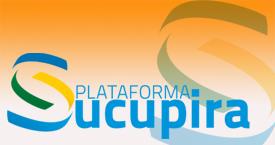Burnout Syndrome, telework and technological revolution
a study of professional illness in times of Covid-19
Abstract
The scope of this theoretical incursion is to reflect legally on the technological impacts caused in labor relations by the Fourth Technological Revolution or Industry 4.0, which facilitated the modality of work called 'Telework' by the Labor Reform of 2017, in the era of globalized society, especially in the current scenario of epidemiological crisis caused by Covid-19. In addition, the increase in the risk of worsening the health of the worker is analyzed, with the occurrence of the Burnout Syndrome, as a direct consequence of telework too much imposed on the working class during the pandemic of the new virus, which was ratified by the State for the maintenance of business activities, without thinking about the mental health of the worker. In this sense, the emergency legislation edited to regulate labor relations during the crisis of the Sars-Cov-2 virus is verified and its correlation with the resumption of the neoliberal movement of precarious labor law, which elevated the professional illness of those who work remotely. The central problem is to what extent the technological innovations of Industry 4.0 have been beneficial to labor law, given its impacts even on labor legislation, especially during the Covid-19 crisis. To this end, bibliographic and exploratory research is developed, by means of theoretical revision, of an inductive nature, based on works consolidated by national critics, as well as legislative texts and the Federal Constitution. In this sense, it is hoped to make this work of fundamental importance to the academic and social community, in order to give concreteness to labor rights and build an emancipating legal thought.
Downloads
References
ANTUNES, Ricardo. Uberização, trabalho digital e Indústria 4.0. Ricardo Antunes (Org.). São Paulo: Boitempo, 2020.
BEZERRA, Paulo Cesar Santos. Acesso à justiça: um problema ético-social no plano da realização do direito. 2. ed. rev. Rio de Janeiro: Renovar, 2008.
BRASIL. Constituição da República Federativa do Brasil de 1988. Disponível em: http://www.planalto.gov.br/ccivil_03/constituicao/constituicao.htm. Acesso em: 16 jul. 2020.
BRASIL. Decreto 3.048, de 06 de maio de 1999. Aprova o Regulamento da Previdência Social e dá outras providências. Disponível em: http://www.planalto.gov.br/ccivil_03/decreto/d3048compilado.htm. Acesso em: 15 jul. 2020.
BRASIL. Decreto nº 10.088, de 5 de novembro de 2019. Consolida atos normativos editados pelo Poder Executivo Federal que dispõem sobre a promulgação de convenções e recomendações da Organização Internacional do Trabalho - OIT ratificadas pela República Federativa do Brasil. Disponível em: http://www.planalto.gov.br/ccivil_03/_Ato2019-2022/2019/Decreto/D10088.htm#art6. Acesso em: 17 jul. 2020.
BRASIL. Decreto-Lei 5.452, de 1 de maio de 1943. Aprova a Consolidação das Leis do Trabalho. Disponível em: http://www.planalto.gov.br/ccivil_03/decreto-lei/del5452.htm. Acesso em: 16 jul. 2020.
BRASIL. Medida Provisória nº 936, de 1º de abril de 2020. Institui o Programa Emergencial de Manutenção do Emprego e da Renda. Disponível em: http://www.planalto.gov.br/ccivil_03/_ato2019-2022/2020/mpv/mpv936.htm. Acesso em: 20 de jul. 2020.
BRASIL. Tribunal Superior do Trabalho. RR: 675005020125210003, Relator: Luiz Philippe Vieira de Mello Filho. Pesquisa de Jurisprudência. Data de Julgamento: 26/06/2019, 7ª Turma, Data de Publicação: DEJT 01/07/2019 [grifos acrescidos]. Disponível em: https://tst.jusbrasil.com.br/jurisprudencia/729332584/recurso-de-revista-rr-675005020125210003?ref=serp. Acesso em: 05 out. 2020.
CARLOTTO, Mary Sandra; CÂMARA, Sheila Gonçalves. Análise da produção científica sobre a Síndrome de Burnout no Brasil. Revista PSICO, Porto Alegre, PUCRS, v. 39, n. 2, p. 152-158, abr./jun. 2008. Disponível em: https://revistaseletronicas.pucrs.br/ojs/index.php/revistapsico/article/view/1461/3035. Acesso em: 15 jul. 2020.
CARVALHO, Thomaz Jefferson. Síndrome de Burnout: uma introdução do trabalho humano que pode ser indenizado. Londrina, PR: Thoth, 2019.
CASSAR, Vólia Bomfim; BORGES, Leonardo Dias. Comentários à reforma trabalhista. Rio de Janeiro: Forense. São Paulo: Método, 2017.
CONJUR. Revista Consultor Jurídico, 2020. MPT emite nota técnica com 17 recomendações para o home office. Disponível: https://www.conjur.com.br/2020-out-06/mpt-emite-nota-tecnica-17-recomendacoes-home-office. Acesso em 10 out. 2020.
COSTA, Isabel de Sá Affonso da. Teletrabalho: subjugação e construção de subjetividades. RAP, Rio de Janeiro 41(1):105-24, Jan./Fev. 2007. Disponível em: https://www.scielo.br/pdf/rap/v41n1/07.pdf. Acesso em: 20 jul. 2020.
DELGADO, Gabriela Neves; AMORIM, Helder Santos. A legislação pandêmica e o perigoso regime de exceção aos direitos fundamentais trabalhistas. Revista Jurídica Trabalho e Desenvolvimento Humano, Campinas, EDIÇÃO ESPECIAL – DOSSIÊ COVID-19, 2020. Disponível em: http://revistatdh.org/index.php/Revista-TDH/article/view/80/48. Acesso em: 05 out. 2020.
DELGADO, Maurício Godinho. Curso de direito do trabalho. 16. ed. São Paulo: LTr, 2017.
DELGADO, Mauricio Godinho; DELGADO, Gabriela Neves. A Reforma Trabalhista no Brasil: com os comentários à Lei nº 13.467/2017. São Paulo: LTr, 2017.
FERNANDES, Sandra Michelle Bessa de Andrade; MEDEIROS, Soraya Maria; RIBEIRO, Laiane Medeiros. Estresse ocupacional e o mundo do trabalho atual: repercussões na vida cotidiana das enfermeiras. Revista Eletrônica de Enfermagem. 2008; 10(2):414-427. Disponível em: https://www.fen.ufg.br/fen_revista/v10/n2/pdf/v10n2a13.pdf. Acesso em: 15 jul. 2020.
FIGARO, Roseli. et. al. Como trabalham os comunicadores na pandemia da Covid-19. Revista Jurídica Trabalho e Desenvolvimento Humano, Campinas, EDIÇÃO ESPECIAL – DOSSIÊ COVID-19, 2020. Disponível em: http://revistatdh.org/index.php/Revista-TDH/article/view/76/43. Acesso em: 10 out. 2020.
FIORILLO, Celso Antonio Pacheco. Curso de direito ambiental. 14. ed. rev., ampl. e atual. em face da Rio+20 e do novo “Código” Florestal. São Paulo: Saraiva, 2013.
HOBSBAWM, Eric J. A Era das Revoluções 1789-1848. Rio de Janeiro: Paz e Terra, 2014.
IANNI, Octávio. Teorias da globalização. 9 ed. Rio de Janeiro: Civilização Brasileira, 2001.
KALIL, Renan Bernardi. A regulação do trabalho via plataformas digitais. São Paulo: Blucher, 2020.
LEITE, Carlos Henrique Bezerra. Curso de direito do trabalho. 9. ed. São Paulo: Saraiva, 2018.
MARTINEZ, Luciano. Curso de direito do trabalho: relações individuais, sindicais e coletivas do trabalho. 7. ed. São Paulo: Saraiva, 2016.
MARTINS, Luciana Monteiro Mendes; et al. Agentes estressores no trabalho e sugestões para amenizá-los: opiniões de enfermeiros de pós-graduação. Rev. Esc. Enf. USP, v. 34, n. 1, p. 52-58, mar. 2000. Disponível em: http://www.ee.usp.br/reeusp/upload/pdf/497.pdf. Acesso em: 15 jul. 2020.
MELO, Joana Darc. Home Office é responsável pelo aumento de adoecimento no mundo do trabalho. Federação Nacional dos Trabalhadores do Judiciário Federal e Ministério Público da União - Fenajufe, 2020. Disponível em: https://www.fenajufe.org.br/. Acesso em: 10 out. 2020.
OLIVEIRA, Carlos Alonso Barbosa. Processo de industrialização: do capitalismo originário ao atrasado. São Paulo, Editora Unesp, 2003.
ORGANIZAÇÃO DAS NAÇÕES UNIDAS. Declaração Universal dos Direitos Humanos. Disponível em: http://www.un.org/en/universal-declaration-human-rights/. Acesso em: 10 jul. 2020.
ORGANIZAÇÃO MUNDIAL DA SAÚDE (OMS). Coronavirus disease (COVID-19) pandemic. Disponível em: https://www.who.int/emergencies/diseases/novel-coronavirus-2019. Acesso em 26 nov. 2020.
REZENDE, Joffre Marcondes. Epidemia, Endemia, Pandemia. Epidemiologia. Revista de Patologia Tropical. v. 27(1): 153-155.jan-jun. 1998. Disponível em: file:///C:/Users/Priscilla%20&%20Paulo/Downloads/17199-Article%20Text-70301-1-10-20120210.pdf. Acesso em: 18 jul. 2020.
SANTOS, Manoel J. Pereira dos. O Direito Autoral na Internet, Direito e Internet: relações jurídicas na sociedade informatizada. Coordenadores: Marco Aurélio Grego; Ives Gandra da Silva Martins. São Paulo: Editora Revista dos Tribunais, São Paulo, 2001.
SCHWAB, Klaus. A quarta revolução industrial. Trad. Daniel Moreira Miranda. São Paulo: Edipro, 2016.
SILVA, Rodrigo Marques; GOULART, Carolina Tonini; GUIDO, Laura de Azevedo. Evolução histórica do conceito de estresse. Rev. Cient. Sena Aires. 2018; 7(2): 148-56. Disponível em: http://revistafacesa.senaaires.com.br/index.php/revisa/article/viewFile/316/225. Acesso em: 15 jul. 2020.
VALIO, Marcelo Roberto Bruno. Síndrome de Burnout e a responsabilidade do empregador. São Paulo: LTr, 2018.
WYZYKOWSKI, Adriana Brasil Vieira. Coronavírus e a farsa da liberdade negocial nos acordos individuais entre empregados e empregadores. Revista Jurídica Trabalho e Desenvolvimento Humano, Campinas, EDIÇÃO ESPECIAL – DOSSIÊ COVID-19, 2020. Disponível em: http://revistatdh.org/index.php/Revista-TDH/article/view/78/49. Acesso em: 10 out. 2020.














